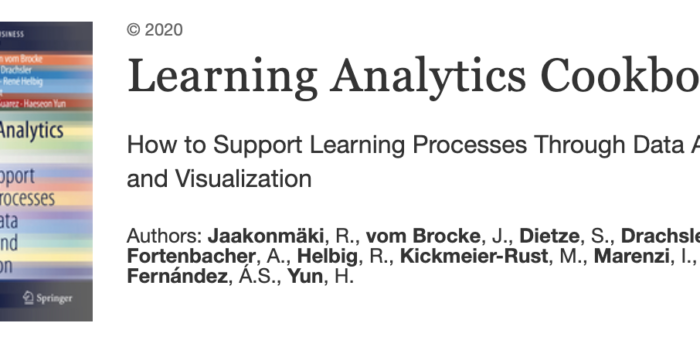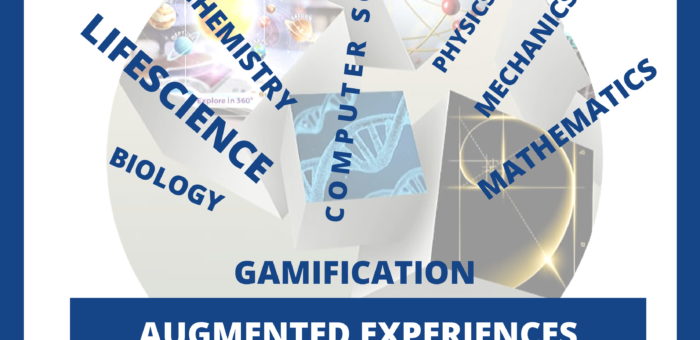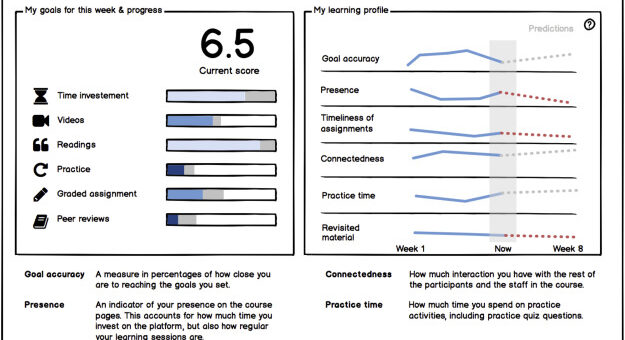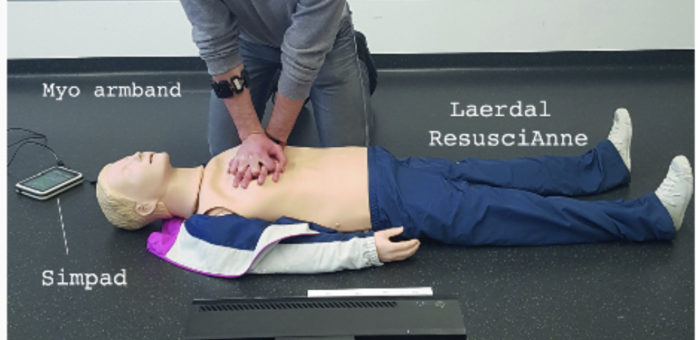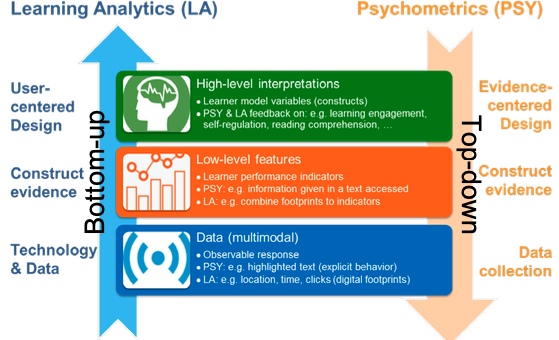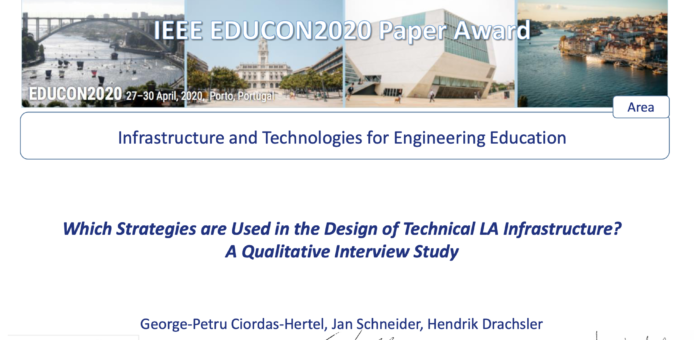
TLA presented at Learning Analytics Learning Network (LALN)
On 4th September 2020 Oliver Herrmann presented the current state of Trusted Learning Analytics (TLA) at a Learning Analytics Learning Network (LALN) workshop. LALN is a worldwide network of LA researchers. The workshop was held as a video conference as part of DELFI, Germany’s leading eLearning research conference. After the presentation, the meaning of “trusted” have been discussed in an international context, that brought new perspectives to be included in further research on TLA.

